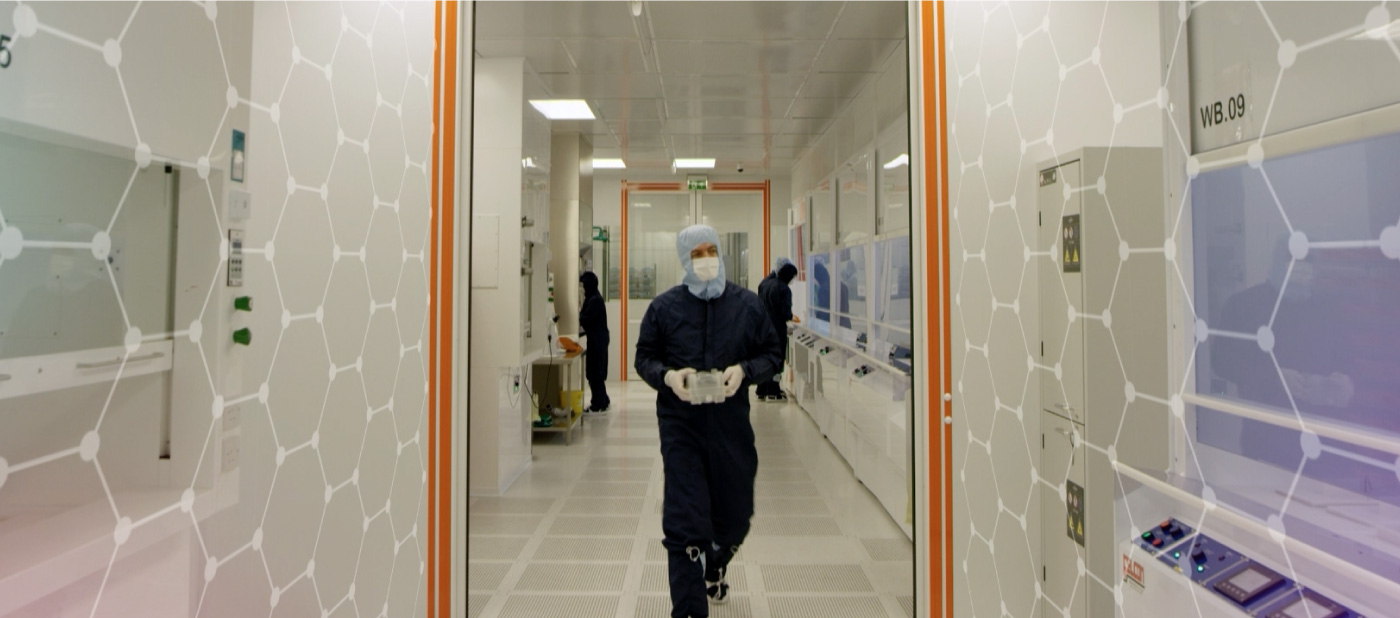Today marks the release of the National Materials Innovation Strategy Interim Report, charting progress with the National Materials Innovation Strategy. The culmination of an unprecedented, collective endeavour across the materials community, the report was developed under the leadership of the Materials Innovation Leadership Group (MILG) formed following last year’s Royce launch of the Strategic Framework for Action.
The report, and its associated summary Materials Futures Progress Report, encapsulates the materials challenges identified by over 1,200 materials innovators spanning a wide range of strategic industries. It also provides a raft of new econometric data, which will support the business case for implementing the eventual National Strategy’s key recommendations.
The strategy process has surfaced the promising cross-sector opportunities that if exploited, will ensure the UK maintains a world-leading position in the rapidly expanding materials markets in which the UK has a major foothold, and which currently generate turnover of £1 trillion and employ £1.9 million skilled workers.
Royce is facilitating this important work, which is pivotal to delivering a coherent approach across Government, industry and the wider materials technology community. This deep-dive activity is already identifying high impact areas where materials innovation will create significant value whilst addressing national priorities – from getting to net zero and rebalancing the UK economy, to supporting national resilience and enabling healthy lives.
The Interim Report is a rallying call to the materials community and Royce is now inviting individuals to form Expert Working Groups tasked with creating detailed recommendations linked to identified opportunity areas. Importantly, these groups will transcend sector boundaries, proposing materials developments that are economy-wide and sustainable. The common goal across all the groups is to accelerate materials innovations to solve industry-identified opportunities and challenges.
The final Strategy will provide recommendations for necessary interventions to accelerate UK materials innovation – including funding and other support for the commercialisation of materials capabilities, the development of investment vehicles, incentives for companies to invest in new materials innovation, support for education and training programmes and as well as highlighting any substantial gaps in national infrastructure.
Professor David Knowles, Royce CEO said:
“As the UK’s national institute for advanced materials we’re very pleased to be able to facilitate this important National Materials Innovation Strategy, which will signal to the world our intention to cement a world leading Materials Sector. All the evidence shows that materials research represents one of the UK’s most significant assets and we therefore need to exploit the innovations which it enables to the full – not least the role of materials in contributing to the ambitious Government target of achieving £1 trillion worth of exports per year by 2030.
“Materials have a critical role to play in the UK’s prosperity. Our drive for a more sustainable society is dependent on having the right materials at our disposal, and to deliver impact at pace we now urgently require a clear National Strategy. This will provide us with a consensus on the key interventions required and as well the momentum for an Action Plan that sees Government, industry, and academia working together to establish a thriving Materials Sector that is strongly rooted in the UK.”
Allan Cook CBE, Chair of the Materials Innovation Leadership Group said:
“Materials are already playing a critical role in developing plans to meet our aspiration to get to net zero, in driving major health improvements, and in supporting more sustainable use of resources; however, this work has already surfaced not only new opportunities, but also some of the barriers which are impeding our progress in implementing materials innovation. The output will provide clear recommendations around how we can accelerate plans to overcoming such impediments.
“All of this has been made possible through the direction of the MILG and the input of over 1,200 materials innovators, which has shaped this important Interim Strategy. Today is a rallying call to materials experts around the UK to join forces with us and provide the detailed input to a final National Materials Innovation Strategy and Action Plan. This will provide the UK with a Strategic Blueprint for the development of a Materials Sector that will generate the most economic, societal and environmental value.”
Refreshed Econometrics
The Interim Report provides a comprehensive and updated Econometrics Report which includes the following data points:
- Over 2,500 companies in the UK are active in materials innovation.
- They contribute just under £45 billion to the UK economy (with a turnover of just under £1 trillion globally).
- 70% of those companies identified have Registered Offices outside of London and the Southeast.
- Combined, these companies employ more than 635,000 people in the UK.
- Approximately three-quarters of the companies identified are micro or small-sized companies; 16% are medium-sized companies and 10% are large companies.
- 50% of companies identified are in manufacturing, and 40% are in R&D.
Cross-over Themes and Core Themes
Following the systematic approach outlined in the Framework for a National Materials Innovation Strategy, industry stakeholders were invited to identify priority industrial applications which will be enabled by materials innovation. Over 1,200 individual responses were received, through workshops and consultation, resulting in the development of both cross-over themes which set out trends and drivers, as well as core themes which are the key applications to which materials innovation can contribute via value-creation opportunities.
Cross-over themes
- Materials for sustainability and circularity
- Materials 4.0: using digital thread/AI and big data to accelerate materials discovery
- Skills – including re-skilling, up-skilling and developing new skills capabilities
- Critical minerals and materials for supply chain resilience and sovereignty
- Manufacturing and scale-up: capabilities for testing, verification and scale-up
- Policy, regulations and standards to enable materials innovation
Core themes
- Energy materials
- Soft materials
- Biocompatible materials
- Structural materials
- Materials for surface enhancement and protection
- Materials for electronics, telecoms, sensing & computing technologies
Thirty Opportunity Workstreams were identified under the Core Theme headings and these will now convene experts to undertake a deeper exploration of materials innovation in each priority area. Sub-strategies will be developed against these opportunities and will be combined to form the Ten Year National Materials Innovation Strategy.
Royce has appointed an expert team comprising ScotCHEM, Perspective Economics and Urban Foresight to engage stakeholders across the materials science community in the development of the National Materials Innovation Strategy. ScotCHEM is the project lead and, with the team, has expanded on the Strategy Framework, working across the research community to develop the Interim Report.
The project works under the direction of the Materials Innovation Leadership Group, which was established by Royce to oversee and champion the development of this important new Strategy that will tackle the major challenges and opportunities that lie ahead for the UK.
Royce is now looking for individuals to join or input to expert working groups for each Opportunity Workstream. If you are interested in contributing to the groups, please complete the Expression of Interest Form.



